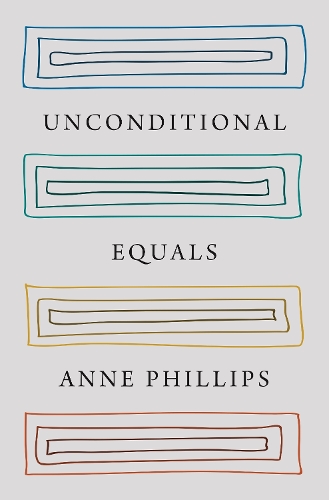
Unconditional Equals
(Paperback)
Available Formats
Publishing Details
Unconditional Equals
By (Author) Anne Phillips
Princeton University Press
Princeton University Press
15th May 2023
United States
Classifications
Tertiary Education
Non Fiction
Social and political philosophy
Gender studies, gender groups
Social discrimination and social justice
305
Physical Properties
Paperback
160
Width 156mm, Height 235mm
Description
Why equality cannot be conditional on a shared human nature but has to be for all
For centuries, ringing declarations about all men being created equal appealed to a shared human nature as the reason to consider ourselves equals. But appeals to natural equality invited gradations of natural difference, and the ambiguity at the heart of nature enabled generations to write of people as equal by nature while barely noticing the exclusion of those marked as inferior by their gender, race, or class. Despite what we commonly tell ourselves, these exclusions and gradations continue today. In Unconditional Equals, political philosopher Anne Phillips challenges attempts to justify equality by reference to a shared human nature, arguing that justification turns into conditions and ends up as exclusion. Rejecting the logic of justification, she calls instead for a genuinely unconditional equality.
Drawing on political, feminist, and postcolonial theory, Unconditional Equals argues that we should understand equality not as something grounded in shared characteristics but as something people enact when they refuse to be considered inferiors. At a time when the supposedly shared belief in human equality is so patently not shared, the book makes a powerful case for seeing equality as a commitment we make to ourselves and others, and a claim we make on others when they deny us our status as equals.
Reviews
"Unsettlingly brilliant. . . . Her work is proof positive of the richness of political theory in its authentically Aristotelian sense: as the abstract contemplation of politics for the sake of doing it betterif not always well."---Teresa M. Bejan, Boston Review
Author Bio
Anne Phillips is the Graham Wallas Professor of Political Science at the London School of Economics, where she previously directed the LSE Gender Institute. Her books include Engendering Democracy; The Politics of Presence; Which Equalities Matter; Multiculturalism without Culture (Princeton); Our Body, Whose Property (Princeton); and The Politics of the Human.
